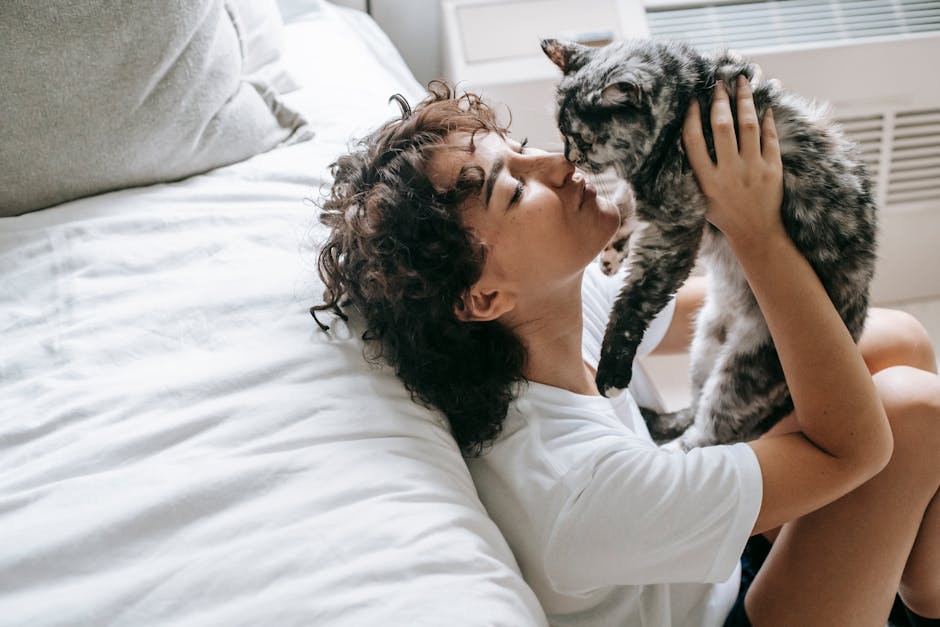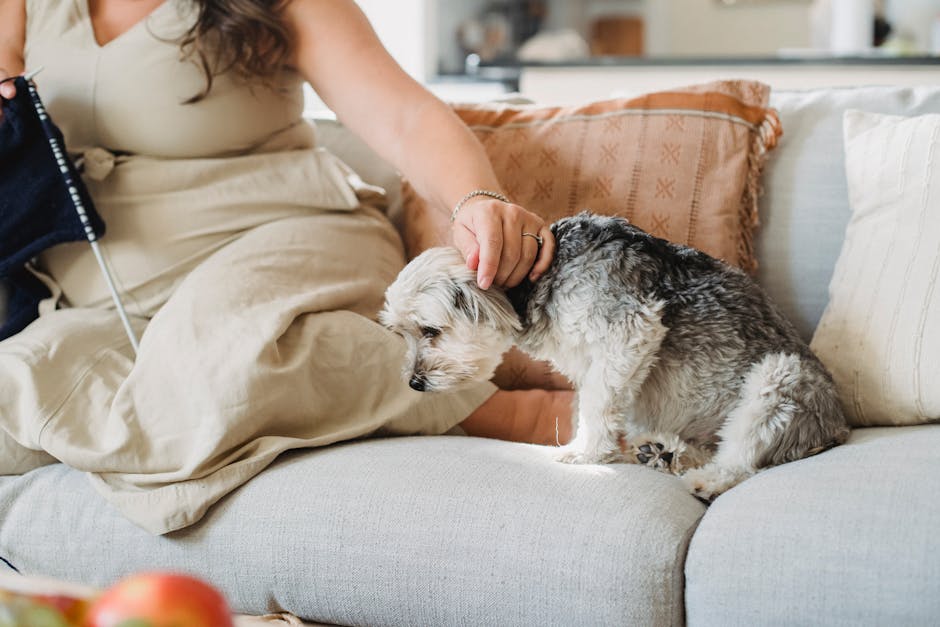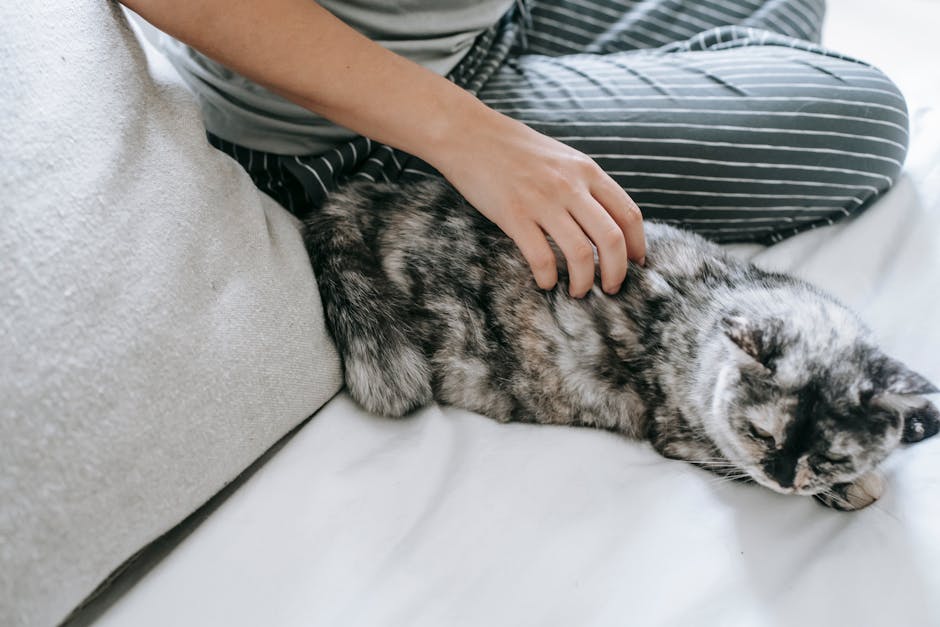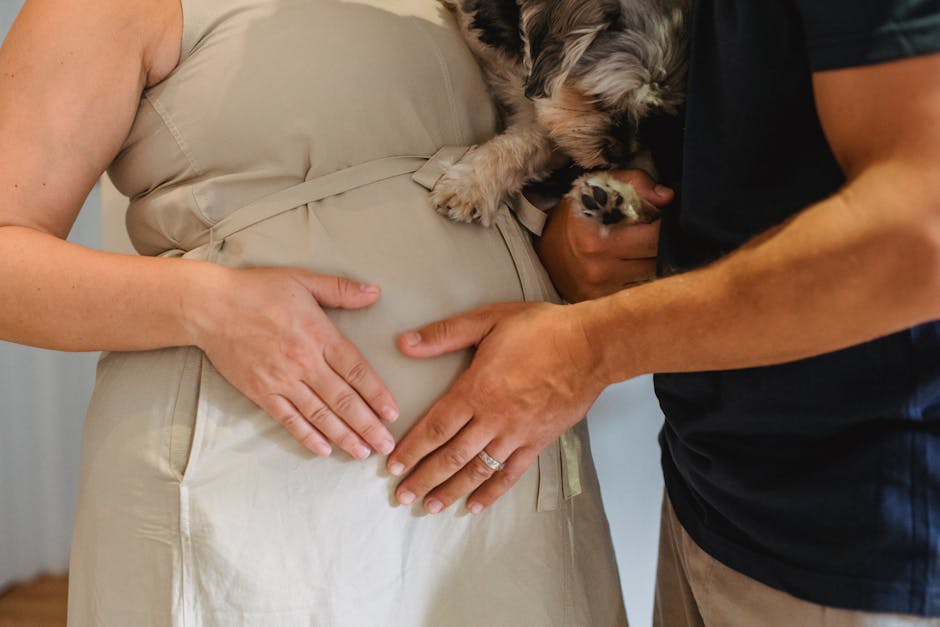Congratulations! You're going to be a mom. This news is beyond exciting, but it comes with its own set of challenges. One of the most challenging tasks is to take care of your cat while being pregnant. You might be wondering if your cat will sense your pregnancy and how it will impact your furry friend's behavior around you. In this blog post, we will discuss how cats act when their owner is pregnant and provide some tips to make the transition easier for both you and your cat.
Increased protectiveness (e.g. staying close to owner, hissing or growling at strangers)

During pregnancy, cats might show an increased level of protectiveness towards their owners. They may become more affectionate and follow their owners around the house, constantly keeping an eye on them. The cats might even hiss or growl at strangers, as they perceive them as a potential threat to their owner's safety. This behaviour shows that cats respond to their owner's hormonal and physical changes during pregnancy, and it is their way of showing support and protection towards their human family. However, it is important to keep in mind that not all cats will behave this way and each cat has its own personality and temperament. If you are unsure about your cat's behaviour towards you or others during pregnancy, it is always best to consult with a veterinarian or a cat behaviourist.
Changes in behavior around the home (e.g. becoming more vocal or meowing at unusual times)

Pregnancy is a significant event in an owner's life that can also affect their cat's behavior. It's not unusual for cats to sense changes in their owners' physical and emotional state during pregnancy and react differently. Some cats may become more affectionate, while others may become more vocal or clingy. It's not uncommon for cats to meow at unusual times, seeking attention or comfort from their owners. Additionally, cats may mark their territory or become shy and reclusive. Owners should understand that these changes are a natural response to the changes in the household, and it's important to provide their furry friends with the same love and affection they were accustomed to before the pregnancy.
Heightened sensitivity to owner's emotions (e.g. comforting owner when upset)

Pregnancy is a time full of emotions and hormonal changes, and cats are known to be sensitive to their owners' emotions during this time. With their heightened sense of smell, cats can pick up on the pheromones produced during pregnancy, making them more attuned to their owner's state of mind.
Cats have been known to offer comfort to their pregnant owners when they are feeling upset or stressed. They may sit by their side, purr, or nuzzle them, providing a calming presence. This is not limited to just emotional support, as some cats may also be more protective of their pregnant owners, staying close and even guarding their belly.
It's important to remember that a cat's behavior can vary depending on their personality and the individual bond they share with their owner. Some cats may become more reserved or even distant during their owner's pregnancy, while others may become more affectionate than usual. It's important to respect a cat's natural behavior and not force them to interact if they are not comfortable.
Overall, cats can be a reliable source of comfort for pregnant owners during a time of emotional and physical changes. As with any momentous occasion, it's important to consult with a veterinarian and discuss what steps can be taken to ensure a safe and healthy pregnancy for both owner and pet.
Potential changes in litter box behavior (e.g. avoiding or marking territory near baby's room)

When a cat's owner is pregnant, there might be potential changes in their litter box behavior. Some cats might start avoiding the litter box altogether, while others may start marking their territory near the baby's room. This behavior change can be a sign of their anxiety and stress towards the new addition to the family. It is essential to introduce the cat to the baby's room as soon as possible and even let them explore the area to make them feel comfortable. Additionally, it is recommended to provide an extra litter box in a different location for the cat's convenience. Moreover, maintaining the litter box hygiene and cleaning it regularly is crucial to keep the cat stress-free and ease the transition during the pregnancy. With proper actions, it is possible to avoid any litter box-related accidents and help the cat adapt to the new family member.
Increased need for privacy and alone time (e.g. hiding or avoiding certain areas of the home)

During pregnancy, your cat may exhibit some changes in behavior, such as an increased need for privacy and alone time. They may hide in secluded areas or avoid certain parts of the home where there is more activity or noise. This behavior is completely normal and is their way of coping with the changes that are occurring in their environment. It's important to respect their need for space and provide them with a quiet and comfortable area where they can retreat to when they feel overwhelmed. Gradually introducing your cat to new situations and people can also help them adjust to the changes that come with pregnancy. By giving your cat the space and support they need, you can help ensure a smooth transition for both your family and your feline friend.
Potential changes in appetite (e.g. increased or decreased interest in food)

During pregnancy, some cats may experience changes in their appetite. Your cat may exhibit an increased or decreased interest in food. They may start to eat more or less than usual, or even go off their food completely. This is normal behavior, and there's no need to worry unless your cat stops eating for an extended period of time.
If your cat is eating less than usual during pregnancy, it's essential to keep an eye on her weight to ensure that it doesn't drop too much. Cats that go off their food entirely for more than a day should be seen by a veterinarian to rule out any underlying health issues.
On the other hand, if your cat is eating more than usual, you should also monitor their weight closely. Pregnant cats tend to gain weight gradually throughout their pregnancy, so it's important to note if your cat starts putting on too much weight too quickly.
Keep in mind that changes in appetite are just one of the many ways that a cat may behave differently when their owner is pregnant. Make sure your cat is receiving plenty of love, attention and monitors their behavior to ensure a safe and stress-free pregnancy for both you and your feline friend.
Changes in sleep patterns (e.g. sleeping more or less, changes in preferred sleeping spots)

Cats are known for being creatures of habit, and pregnancy can often disrupt their routines. One of the most noticeable changes in pregnant cat owners is their cats' sleep patterns. Some cats may sleep more than usual, while others may become more restless and sleep less. It's not uncommon for cats to adapt to their owner's sleeping patterns, which can also lead to changes in their pre-established sleep routine.
The changes in preferred sleeping spots can also be a common occurrence. Pregnant cat owners may choose to create a designated space for their cat to avoid any discomfort they may feel while sleeping. In contrast, some cats may become more protective of their owner and may choose to sleep closer to them.
It's essential to make sure that the cat's changes in sleep patterns don't affect their overall health. Pregnant cat owners should ensure that their feline friends maintain a healthy diet, receive enough exercise, and receive proper veterinary care to avoid any potential health issues.
Possible jealousy or shift in attention seeking behavior (e.g. demanding more attention or acting distant towards owner and baby)

.
During pregnancy, cats may become jealous of their owners' attention towards the unborn baby. They may try to assert their dominance by demanding more attention from the owner or acting distant towards them and the baby. Some cats may even resort to destructive behavior such as scratching furniture or urinating outside the litter box to express their displeasure.
It's important for owners to understand their cat's behavior during this time and provide them with enough attention and love to make them feel secure. Gradual integration of the cat into the baby's life by gradually introducing it to the baby's scent, sound and presence can help ease any jealousy or behavioral issues. Keeping the cat's routine consistent and providing them with comfort and a safe space to retreat to can also help mitigate any negative behaviors.
Overall, with patience and understanding, it's possible for cats to adjust to the changes brought on by pregnancy and ultimately form lasting bonds with both their owner and the new addition to the family.




